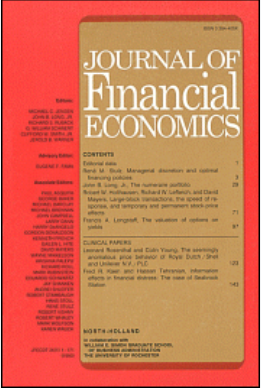隐蔽携带
IF 10.4
1区 经济学
Q1 BUSINESS, FINANCE
引用次数: 0
摘要
斜率套利持有收益率曲线较陡(较平)国家的长期债券多头(空头)头寸。传统利差持有短期利率较高(较低)国家的多头(空头)头寸。我们发现(i) 在 2008 年前(后),斜率套利回报率为轻微负值(强正值),而在更长的样本中则被掩盖;(ii) 2008 年后,传统套利回报率较低;(iii) 2008 年后,预期全球增长和通胀率下降。我们通过一个均衡模型将这些发现联系起来,在该模型中,各国对有关全球产出和全球通胀的新闻冲击具有异质性暴露。本文章由计算机程序翻译,如有差异,请以英文原文为准。
Concealed carry
The slope carry takes a long (short) position in the long-term bonds of countries with steeper (flatter) yield curves. The traditional carry takes a long (short) position in countries with high (low) short-term rates. We document that: (i) the slope carry return is slightly negative (strongly positive) in the pre (post) 2008 period, whereas it is concealed over longer samples; (ii) the traditional carry return is lower post-2008; and (iii) expected global growth and inflation declined post-2008. We connect these findings through an equilibrium model in which countries feature heterogeneous exposure to news shocks about global output and global inflation.
求助全文
通过发布文献求助,成功后即可免费获取论文全文。
去求助
来源期刊

Journal of Financial Economics
Multiple-
CiteScore
15.80
自引率
4.50%
发文量
192
审稿时长
37 days
期刊介绍:
The Journal of Financial Economics provides a specialized forum for the publication of research in the area of financial economics and the theory of the firm, placing primary emphasis on the highest quality analytical, empirical, and clinical contributions in the following major areas: capital markets, financial institutions, corporate finance, corporate governance, and the economics of organizations.
 求助内容:
求助内容: 应助结果提醒方式:
应助结果提醒方式:


